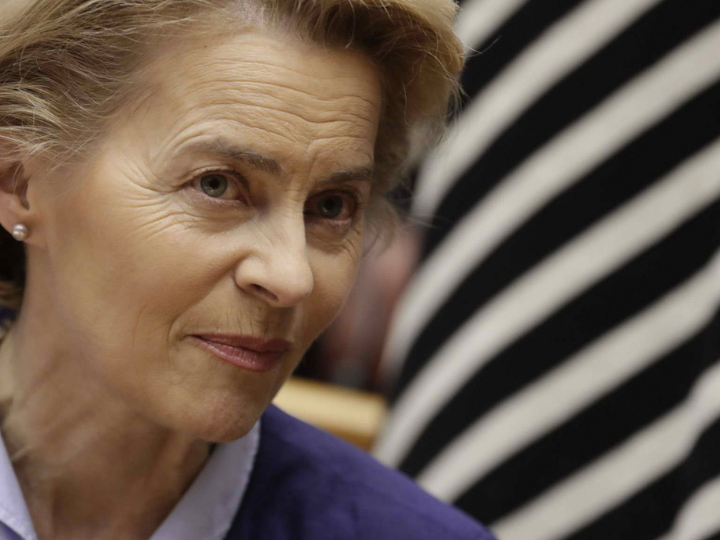By
Shada Islam
Implementing Agenda 2030 - the internationally-agreed list of 17 sustainable development goals - demands the active involvement of empowered women. And that means getting 130 million out-of-school girls into classrooms. Right now.
Girls’ education must stand centre-stage of the global development agenda, not treated as an afterthought. Regretfully and damagingly, it still is a footnote – a noble intention.
Too many governments, for too many years, have shrugged off their responsibility. They have paid lip service to the importance of girls’ education - and gender equality - but then left the real heavy lifting to NGOs, philanthropists and the private sector.
Multilateral development banks are focused on the big picture issues of development such as energy, connectivity and climate change. But there can be no big picture development unless little girls grow up to be educated, emancipated and active women.
True, Christine Lagarde, the head of the IMF, makes sure she speaks to women’s groups when traveling to developing countries. But how often does the IMF insist that countries accessing its bailouts stop discriminating against women?
It isn’t complicated. Agenda 2030 has a specific stand-alone gender equality goal: SDG 5. That’s good and important. But gender equality cuts across each and every one of the 17 SDGs.
Without women’s participation, there can be no progress on poverty, hunger, health, education, water, sanitation, employment, climate change, environmental degradation, urbanisation, conflict, peace and financing for development.
The list is long. As the wonderful Bob Marley may have put it: “no woman, no development” - sustainable or otherwise.
The challenge of getting so many girls into classrooms is enormous - but so are the rewards. And there are technologies and innovative financial tools that can make it happen, provided there is political will.
So far, there isn’t much. Today, because they did not get an education, almost 500 million women cannot read. This fact cripples their active participation in politics, society and labour markets.
The barriers facing girls in education come from the families, the communities and societies they live in, in addition
to restrictive interpretations of religion and govern-mental legislation.
It’s not just about money. Even in places where school fees are eliminated, costs for transportation, textbooks or uniforms can be excessively high.
If they have to choose, parents may decide to send their sons to school and keep their daughters at home. Unlike boys, many girls are forced to get married before their 15th birthday, where they then proceed to give birth and take on household duties.
Parents may also be deterred from sending their girls to school, especially in regions where the commute is not safe and where sexual violence against women and girls is widespread.
Crucially, too, schools and teachers often do not create a gender-sensitive environment. Schools may not have separate bathrooms, which may discourage girls from attending school during menstruation.
Across the world, a lack of gender-sensitive teaching can result in girls being excluded from subjects such as science, technology, engineering and math (STEM) and can generally create a climate where girls are not encouraged to learn.
Yet there is so much to gain. East Asian countries have shown that educating girls can break cycles of poverty in just one generation.
Educated girls earn twice as much as those without an education. Universal secondary education for girls virtually eliminates child marriage and reduces the risk of early childbearing as a result.
Educated girls grow up to be women who know more about health, nutrition and well-being, are aware of the perils of sexual violence and are responsible citizens who can work for a high quality of democracy.
And then there is the financial impact: addressing the gender gap in education could yield over €112bn a year to developing countries. Countries that provide secondary education to their children cut their risk of war by half and reduce the risk of extremism.
So let’s stop prevaricating. Governments everywhere need to increase domestic budgets for education to 20%, as recommended by the Global Partnership for Development, a global fund dedicated to education.
National education systems should be made more girl-friendly. Donors must reverse the trend of declining aid for education and give priority to primary and secondary education for girls.
The EU has a special responsibility to put its money where its mouth is. More EU money should go into girls’ education. European countries must also work with their partners to put gender equality higher on the national and international agenda.
How about if the EU made girls’ education a key condition when it provides countries with development aid?
What if those countries that spend more on defence than on education were made ineligible for EU aid and trade benefits?
Recalcitrant governments will use an array of arguments, including tradition, culture and religion, to excuse their neglect of girls’ education. They should not be allowed to get away with it.
As Malala’s inspiring life story and struggle have so vividly illustrated, no so-called traditions can stand in the way of enlightened parents and determined girls.
My mother, who teaches under-privileged children in Karachi, the commercial capital of Pakistan, says that there are “thousands of Malalas” in developing countries who struggle to have their voice heard amid the strident, uncaring voices of mainly male politicians.
Agenda 2030 provides an opportunity to increase pressure on governments everywhere to pay more attention to the education of girls. Let’s use it.
*First published in friendsofeurope.org




 By: N. Peter Kramer
By: N. Peter Kramer
